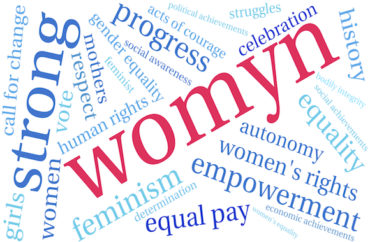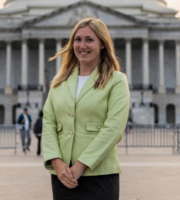
Only three won’t permit transgender applicants
All but three of the nearly 30 women’s colleges in the U.S. allow biological male students who “identify as female” – including “transgender,” “nonbinary,” “agender,” and “gender fluid” – to enroll at their institutions, a College Fix analysis found.
The three colleges are the College of St. Mary in Nebraska, Sweet Briar College in Virginia, and St. Mary’s College in Indiana.
The changing admissions policies have resulted in mixed responses from students and alumni.
Most recently, St. Mary’s College, a private, Catholic institution in Indiana, received considerable backlash when its board approved a new admissions policy to allow transgender women to apply. The college reversed its decision in December.
“This policy was so disheartening, it was a betrayal of the women and the college’s unique foundation and mission as a single-sex institution,” sophomore Macy Gunnell told The Fix this month via social media message.
To Gunnell, exclusively women’s colleges are important because they provide an encouraging and “tight-knit” environment and they are heavily involved in helping young women achieve thriving, successful futures.
“Going down the path of woke policies such as the policy Saint Mary’s implemented will only result in a detrimental loss of finances, enrollment, and trust,” Gunnell told The Fix. “Most importantly, it is not love to affirm anything but the truth to young students. Being a woman is not something anyone can do.”
Support for new admissions policies
However, other students and alumni of women’s colleges have praised the policy changes, and expressed hope that the three outliers will enact similar ones.
“There’s a number of dynamics at St. Mary’s with their decision,” Marianne Duddy-Burke, executive director of DignityUSA and Wellesley College alum, told The Fix in a phone interview this month. “Leadership for initial change acted with good intentions, but they put vulnerable people at the center of their failure; nonbinary and transgender people who thought they were welcome got that taken away quickly.”
DignityUSA is a group that works to promote acceptance of “people of all sexual orientations, genders, and gender identities” in the Catholic Church, according to its mission statement. The group disagrees with the Catholic Church teaching that marriage is only between one man and one woman.
Duddy-Burke encouraged women’s colleges to continue advocating for changes in gender admissions policies.
“They can be on the forefront of reshaping social norms,” Duddy-Burke told The Fix.
Decade of change
The first women’s college to admit transgender students was Mills College in California in 2014, according to the college’s alumni magazine. Later, Mills merged with Northeastern University, and as of 2022, is now a co-ed satellite campus of Northeastern.
More than two dozen other colleges soon followed Mills’ lead. The Fix analysis found that their gender admissions policies vary, with some welcoming any student who identifies as female to apply.
Others, such as Hollins University in Virginia, outline restrictions barring “nonbinary” applicants and biological females who identify as males.
Last year, Wellesley College in Massachusetts also clarified its transgender admissions policy in response to confusion. Administrators said students who identify as transgender females (biological males) may apply, but the college will not admit transgender male (biological female) students, The Fix reported.
Many of the colleges’ policies specify that, to be accepted, students must “consistently live and identify as women,” according to The Fix analysis.
A few others do not have established policies but still admit transgender students, including Trinity Washington University, a private, Catholic college in Washington, D.C.
Trinity President Patricia McGuire told Inside Higher Ed in December that despite not having a set policy, the college “welcomes trans students.”
Shrinking number of women’s colleges
Today, the co-educational higher education model encompasses the vast majority of colleges and universities in the United States. After peaking at 230 institutions in the 1960s, more than 200 women’s colleges have switched to co-educational, according to a 2020 report by The Women’s Colleges Coalition.
Converse College switched models and became Converse University in 2020. It subsequently has acquired an 18% male student body over the past four years, according to the university admissions website. Brenau University and Texas Woman’s University also recently shifted to a co-educational model, leaving only 27 women’s colleges as of February 2024, The Fix found.
The Fix reached out to The Women’s Colleges Coalition and the Independent Women’s Forum for comment twice this month, but did not receive responses. The Fix inquired about why the number of women’s colleges is shrinking, what separates women’s colleges from other institutions, and what their opinions are about the changes in gender admissions policies.
MORE: Women’s college allows some men to attend but not all women
IMAGE: arloo / Shutterstock
Like The College Fix on Facebook / Follow us on Twitter






Please join the conversation about our stories on Facebook, Twitter, Instagram, Reddit, MeWe, Rumble, Gab, Minds and Gettr.